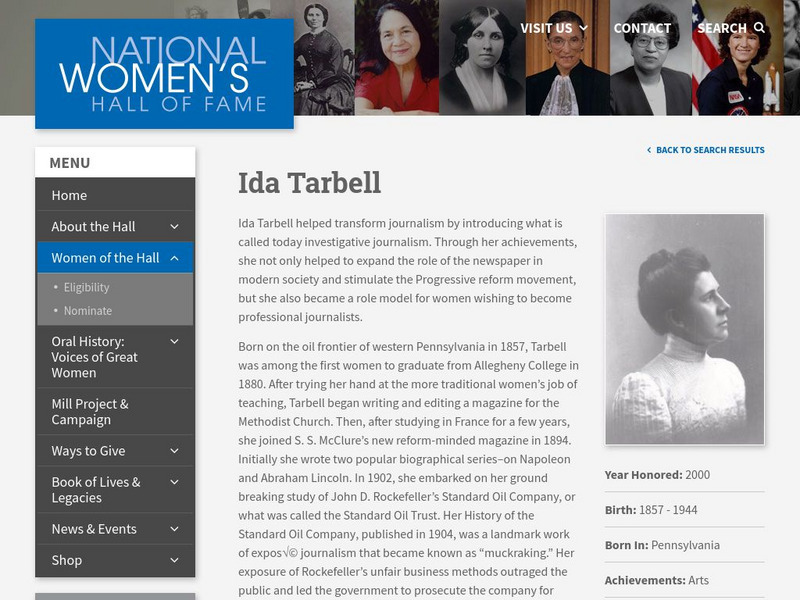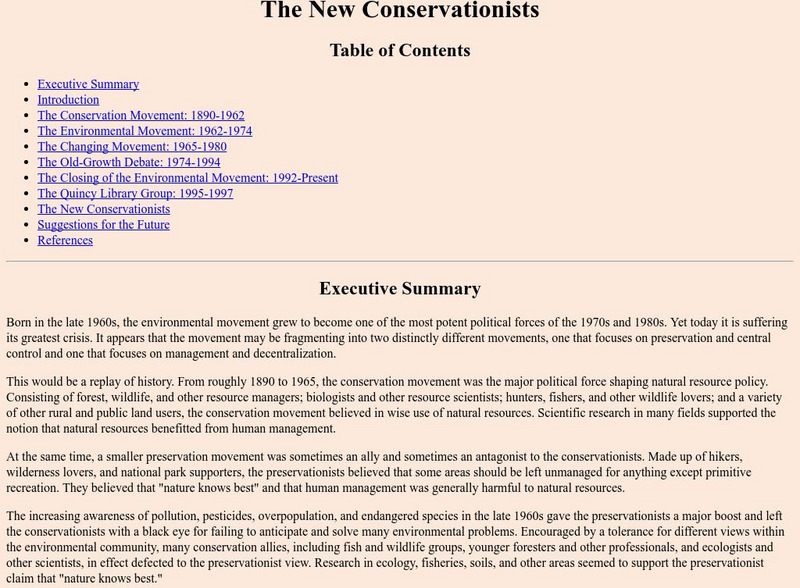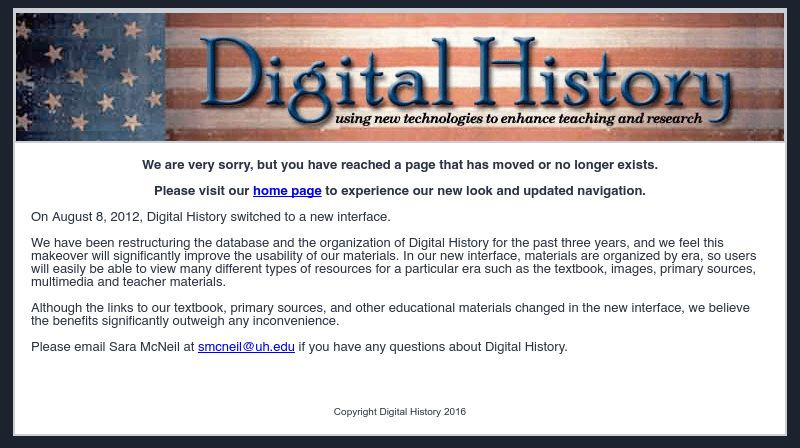National Women’s History Museum
National Women's History Museum: Seneca Falls Convention
Students will examine primary sources about the Seneca Falls Convention in 1848 to understand why a women's rights movement was necessary to gain greater rights for women.
National Women’s History Museum
National Women's History Museum: Woman's Rights Activists During the Civil War
During the Civil War, reformers focused on the war effort rather than organizing women's rights meetings.
US National Archives
Nara: Teaching With Documents: Political Cartoons
Offers teaching activities, four political cartoons, and a narrative about reforms proposed by three major presidential candidates in 1912: Theodore Roosevelt, William Howard Taft, and Woodrow Wilson.
University of California
The History Project: Ideas and Strategies of the Woman Suffrage Movement
Although the campaign for Woman Suffrage in the United States began with the Seneca Falls Convention of 1848, six decades later the leaders of the movement could claim victories in only four, sparsely-populated Western states, Colorado,...
Smithsonian Institution
Smithsonian Education: Spotlight Biography: Labor Reformers
Biographical information on Samuel Gompers, Frances Perkins and Cesar Chavez. All three were inspirations for the labor union movement.
University of Groningen
American History: Outlines: Westward Expansion
This article offers a detailed history of early 19th century westward migration and the social diversity of the pioneers moving west.
National Women's Hall of Fame
National Women's Hall of Fame: Ida Tarbell
Read this portrait of Ida Tarbell, a Progressive Era journalist known for her innovative methods of investigative journalism.
Other
Thoreau Institute: The History of Environmentalism
This essay is a thorough investigation of the various political and philosophical changes which have occurred throughout the environmental movement. Examines the current situation and includes references. Excellent article.
Digital History
Digital History: Feminism Reborn
This comprehensive survey of the women's movement during the 1960s and 1970s documents women and politics, women's wages, legal discrimination against women, stereotypes of women, women's rights legislation, and women's rights...
Khan Academy
Khan Academy: Ap Us History: 1890 1945: The Age of Empire: The Progressive Era
The Progressive Era from the 1890s to the 1920s evolved as a response to the negative effects of industrialization. Reforms that emerged provided protections for workers and consumers and gave women voting rights. Backlash against the...
Other
Ar Net: Hispanic Americans, an Under Represented Group
An excellent description of the problems facing the involvement of Hispanic-Americans in American politics. The essay covers 1948 to 1996, with a good discussion of the civil rights era.
Black Past
Black Past: Barnett, Ida Wells
This biography details the life and journalistic career of African American women's rights activist Ida B. Wells Barnett.








